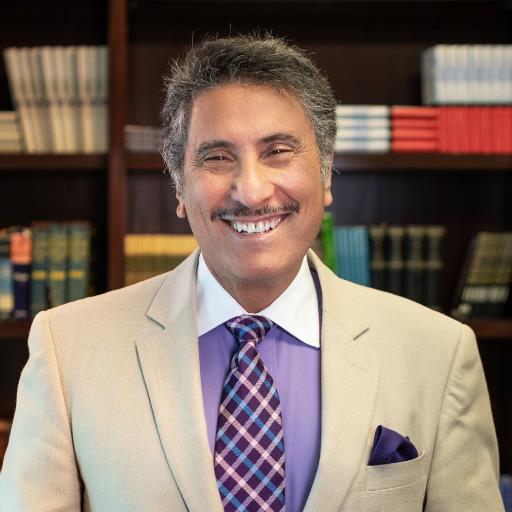Prayer brings God's power into your life. It opens you up to blessings, and is ultimately a relational experience with the One who made you. But the problem is this: So many of us are taught bad habits about prayer. The purpose of prayer is not to inform God, to persuade God, or to manipulate God; rather, the purpose of prayer is to surrender to God and to His will.
Why Pray?
Someone might say, "If God knows everything, then why should we pray?" Good question — and the answer is simple: because God wants to hear us pray. And God wants to commune with us even more than we want to commune with Him. Why? Because He loves us far more than we will ever be able to love Him.
We miss God's best when we miss God's purpose in prayer. Our prayers are ineffectual unless we understand not only how to pray, but also what to pray. The purpose of prayer is for God to be glorified and magnified. Jesus said to the disciples in John 14:13, "Whatever you ask in My name, that I will do, that the Father may be glorified" (NKJV). Prayer should be for God's glory — not just for our needs. And when God meets our needs, He gets the glory.
When my children were small, they asked for all kinds of things. Did my wife and I give them everything they asked for? Of course not. As their parents, we gave them, and we continue to give them, only what we believe is the best for them. And if we, as fallen people, know how to give good gifts to our children, how much more does our heavenly Father give good gifts to those who ask Him (see Matthew 7:11 and Luke 11:13).
How to Pray
God, in His magnificence, taught us how to pray. He knew that often we don't have the wisdom to pray as we ought to or for what we ought to. Therefore, God commissioned the Holy Spirit to overrule our prayers. Listen to what Paul said: "We do not know how to pray as we should, but the Spirit Himself intercedes for us with groanings too deep for words" (Romans 8:26, NASB). And that is why in Matthew 6:9-15, Jesus gives us a succinct, meticulous, comprehensive outline (in the Lord's Prayer) of what true prayer should be like. The first section deals with God's glory. While in the second section, Jesus teaches us that when God meets our needs, He gets the glory then, too.
Jesus does not tell us where to pray. But He does say that we must give our full attention to our prayer time by going into a place where we can concentrate, and where we won't be disturbed. In Matthew 6:6, when Jesus said, "Go into your inner room" (NASB), He is saying, "Go to a place where you can focus on Me, where you're not going to be distracted."
The Lord does not suggest a time for prayer, although Jesus Himself got up early in the morning. I confess to you that if I do not take that first fruit of the day to spend with God, then my day is miserable. I accomplish nothing. Scripture tells us to "pray continually" (1 Thessalonians 5:17, NIV). We are to pray everywhere, in every available circumstance, at every opportunity. Prayer is a lifestyle. We are to pray before meals, after meals, in special circumstances, before meetings, after meetings, getting into the car, getting out of the car — all the time.
Jesus does not specify a special posture of prayer. Does God hear us if we don't kneel? Of course! Does He hear us if we're standing up? Of course! The posture of prayer has nothing to do with it. We need to understand how to pray and what to pray, and that is why Jesus said, "When you pray, pray in this way" (see Matthew 6:9), meaning "along these lines," or "in the following manner," or "in such a pattern."
The Model Prayer
In Matthew 6, before He provides the Lord's Prayer, Jesus warns His followers not to pray like the Pharisees, with meaningless, repetitious prayers. Therefore, it is unlikely that Christ would replace one meaningless, repetitious prayer simply for another. He's giving them a pattern, a model.
Don't misunderstand me. It is fine to recite the Lord's Prayer, just as you recite any part of the Bible. It is fine to memorize it, just like memorizing any part of Scripture. But if you just rattle it off and think that you have prayed, then you have missed God's purpose in prayer.
The Lord's Prayer is a guide for your prayer life, not a substitute for it. And the purpose of the Lord's Prayer — from beginning to end — is for us to learn to follow its pattern of praise, adoration, and petition. And when you and I understand that, we're going to experience power in prayer like we've never experienced before.
Whatever it takes for you to get up and to spend time with God, do it. Follow the pattern of the Lord's Prayer. Begin with praise and adoration and begin to talk to the Lord. The Spirit of God is going to teach you, but you must make the decision to change your prayer life for the better.
Adapted from Michael Youssef's book The Prayer that God Answers.






